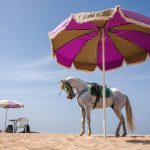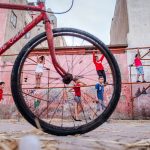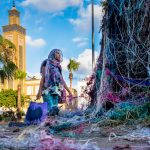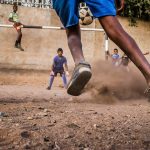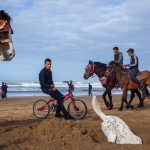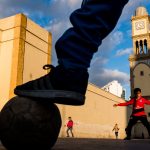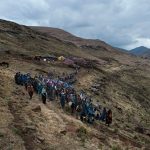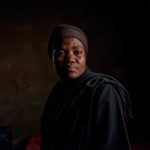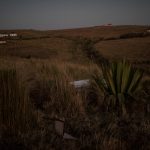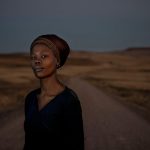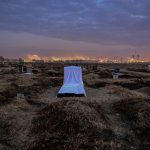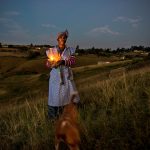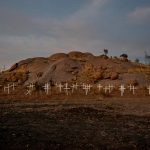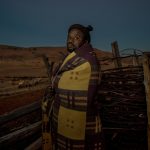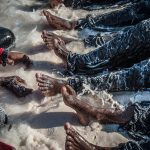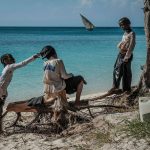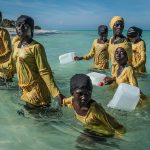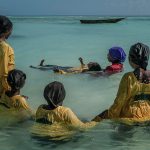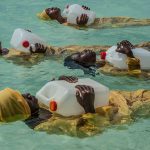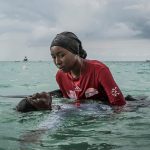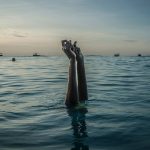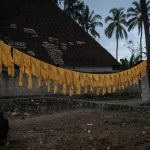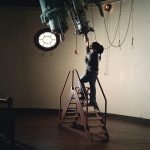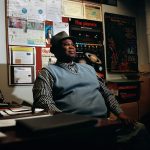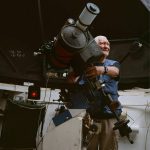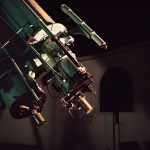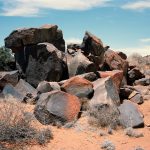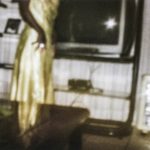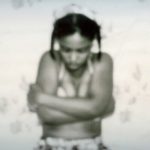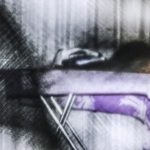CAP Prize – The Contemporary African Photography Prize
Yassine Alaoui Ismaili
Born in 1984 in Khouribga, Morocco. Lives in Casablanca, Morocco
Casablanca Not the Movie, 2014–2018
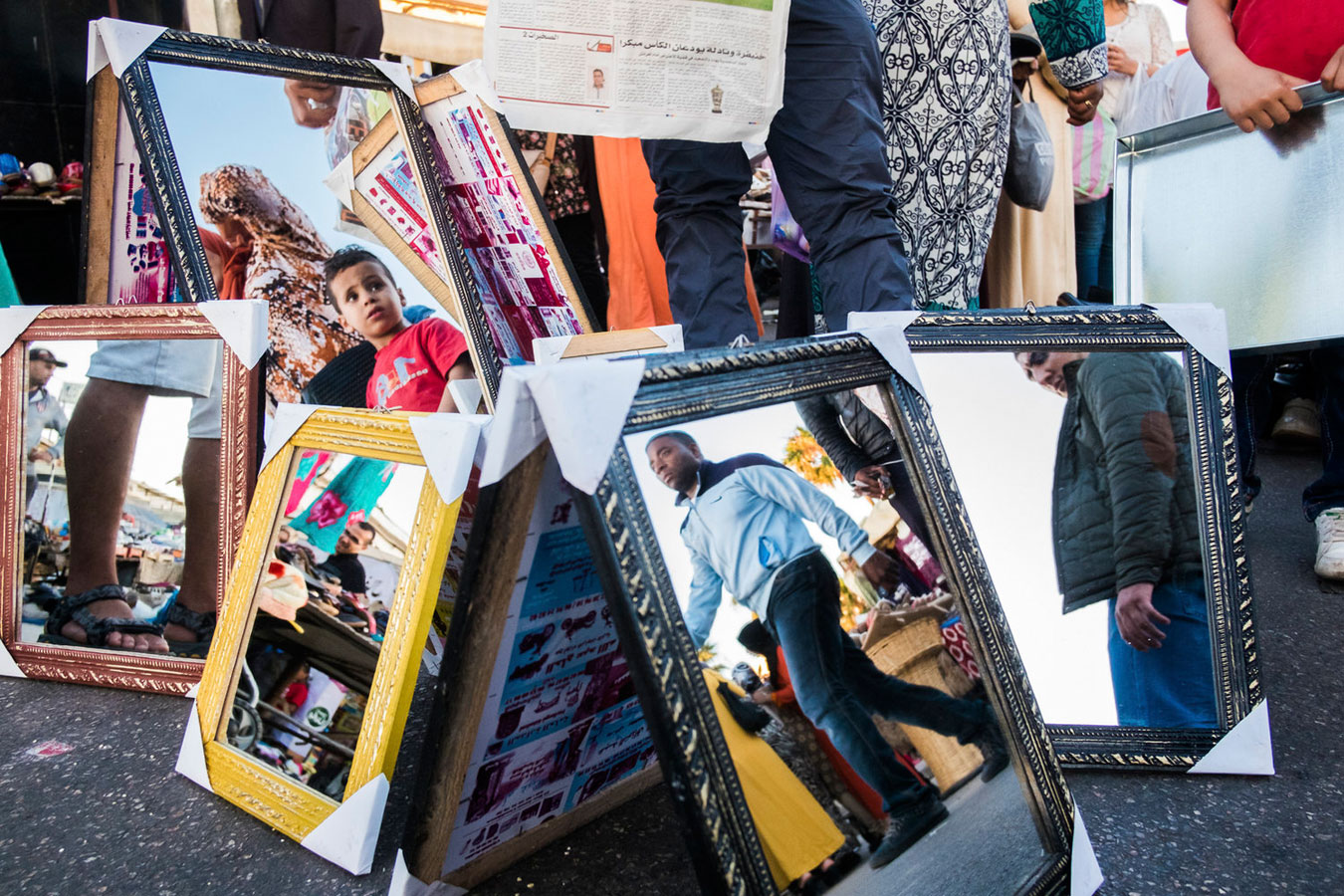
© Yassine Alaoui Ismaili
Casablanca Not the Movie is a long-term project that I started in 2014. It is both a love letter to the city I call home and an effort to nuance the visual record for those whose exposure to Morocco’s famous city is limited to guide book snapshots, film depictions or Orientalist fantasies. The title of the project references the classic 1942 movie Casablanca that was not filmed in the city, but rather in a Hollywood studio. Casablanca is a city of diverse cultures, shaped by numerous currents that may seem in opposition to one another. I want to convey the real street life and situations of Casablanca and highlights the moments where these cultures meet, which we wouldn’t notice if not in a photograph from the perspective of a Moroccan, who was born, grew up and still lives there.
Paul Botes
Born in 1972 in Johannesburg, South Africa. Lives in Johannesburg, South Africa
Marikana – The Aftermath, 2013 – on-going
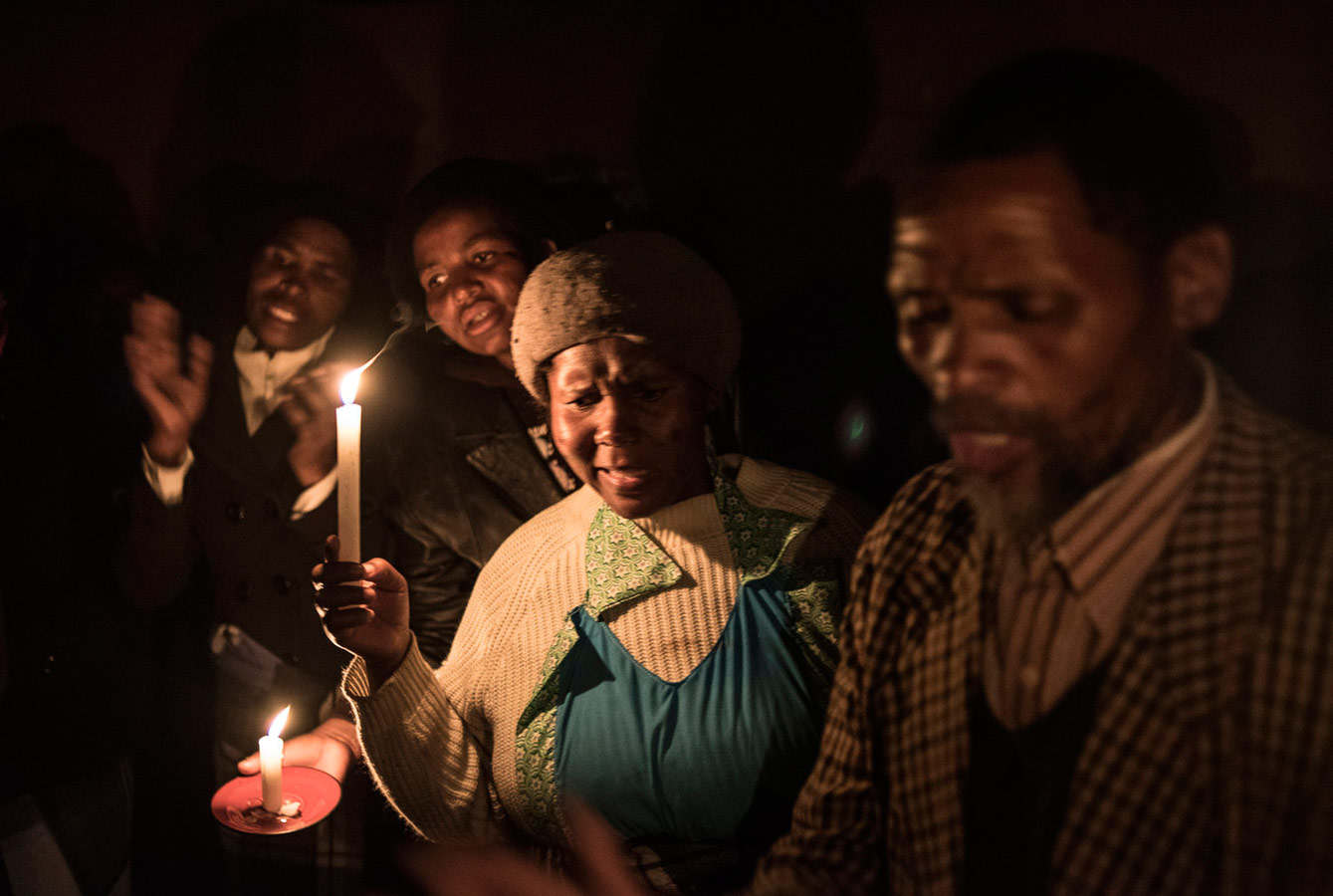
© Paul Botes
The Marikana massacre on 16 August 2012 was the most lethal use of force by South African police since the 1960 Sharpeville massacre, and served as a brutal reawakening for post-apartheid SA. Thirty-four striking mine workers were killed; autopsies show many were shot in the back, the head, or at close range. This reconfigured the relationship between South Africans and an apparently progressive government.
This project was conceived after attending the funeral of Molefi Ntsoele, a mine worker killed in Marikana, in the remote village of Diputaneng in Lesotho. Understanding the massacre’s effects on the dead men’s families and communities became urgent because they were ignored in mainstream narratives.
The families come from marginalised and impoverished rural areas. They were criminalised by the state and denied counselling or financial support. Over the past five years I pursued my work through a process of “slow journalism” and “returning” to the families, with interviews sometimes doubling as therapy sessions.
The project reveals the financial and emotional vacuums created by the deaths and the effects on families and communities. As mineworkers’ children commit suicide and poverty deepens, the impact echoes for generations.
Mining’s migrant labour system requires barely educated men to build two lives: one, in the taverns, brothels and claustrophobic innards of SA; the other in the rural expanses to which they remit their salaries. This is where their ancestors’ spirits reside, informing an identity based upon culture, patriarchy and tradition.
The families are based mainly in the Eastern Cape and Lesotho, so these personal stories inevitably weave into an intricate quilt reflecting SA’s historical and contemporary relationship with the dehumanizing and emasculating migrant labour system.
It is critical that we remember the 44 dead and deepen our understanding of them, including the ten killed by police and striking mine workers in the week before the massacre, who are excluded from commemorations and ignored by mainstream narratives. Collecting family photographs and documents was essential in terms of ‘humanising’ the victims.
By exploring the massacre’s effects on families and communities with a history of mining migrancy, the project adds nuance and depth to understanding the socio-politics of contemporary SA.
Anna Boyiazis
Born in 1967 in Los Angeles, USA. Lives in Los Angeles, USA.
Finding Freedom in the Water, 2016
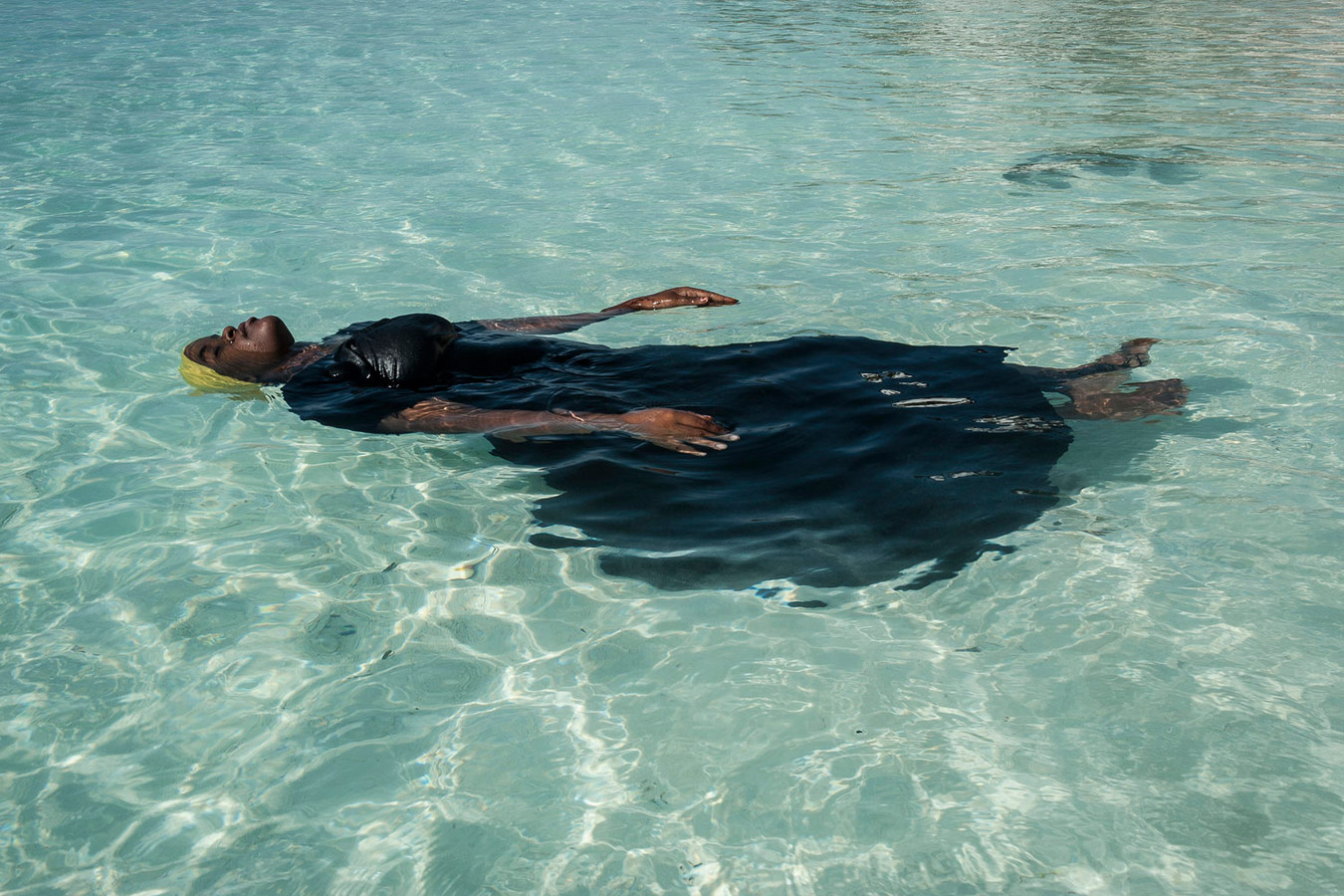
© Anna Boyiazis
Daily life in the Zanzibar Archipelago centers around the sea, yet the majority of girls who inhabit the islands never acquire even the most fundamental swimming skills. Conservative Islamic culture and the absence of modest swimwear have compelled community leaders to discourage girls from swimming. Until now.
For the past few years, the Panje Project has made it possible for local women and girls to get into the water, not only teaching them swimming skills but also aquatic safety and drowning prevention techniques. The group has empowered its students to teach others, creating a sustainable cycle. Students are also provided full-length swimsuits, so that they can enter the water without compromising their cultural and religious beliefs.
While the wearing of full-length swimsuits may be seen as subjugation, donning one in order to learn a vital life skill, which has long been and would otherwise be forbidden, is an important first step towards emancipation. Education — whether in or out of the water — serves as a springboard that provides women and girls with the empowerment and tools with which to claim their rights and challenge existing barriers.
The rate of drowning on the African continent is the highest in the world. Still, many community leaders have yet to warm up to the idea of women and girls learning to swim. The lessons challenge a patriarchal system that discourages women from pursuing activities other than domestic tasks. It is this tension between the freedom one feels in and under water and the limitations imposed upon Zanzibari women that is at the heart of this series.
Tommaso Fiscaletti & Nic Grobler
Born in 1981 in Cattolica, Italy. Lives in Cape Town, South Africa
Born in 1979 in Pretoria, South Africa. Lives in Cape Town, South Africa
Hemelliggaam or The Attempt to be Here Now, 2016–2018
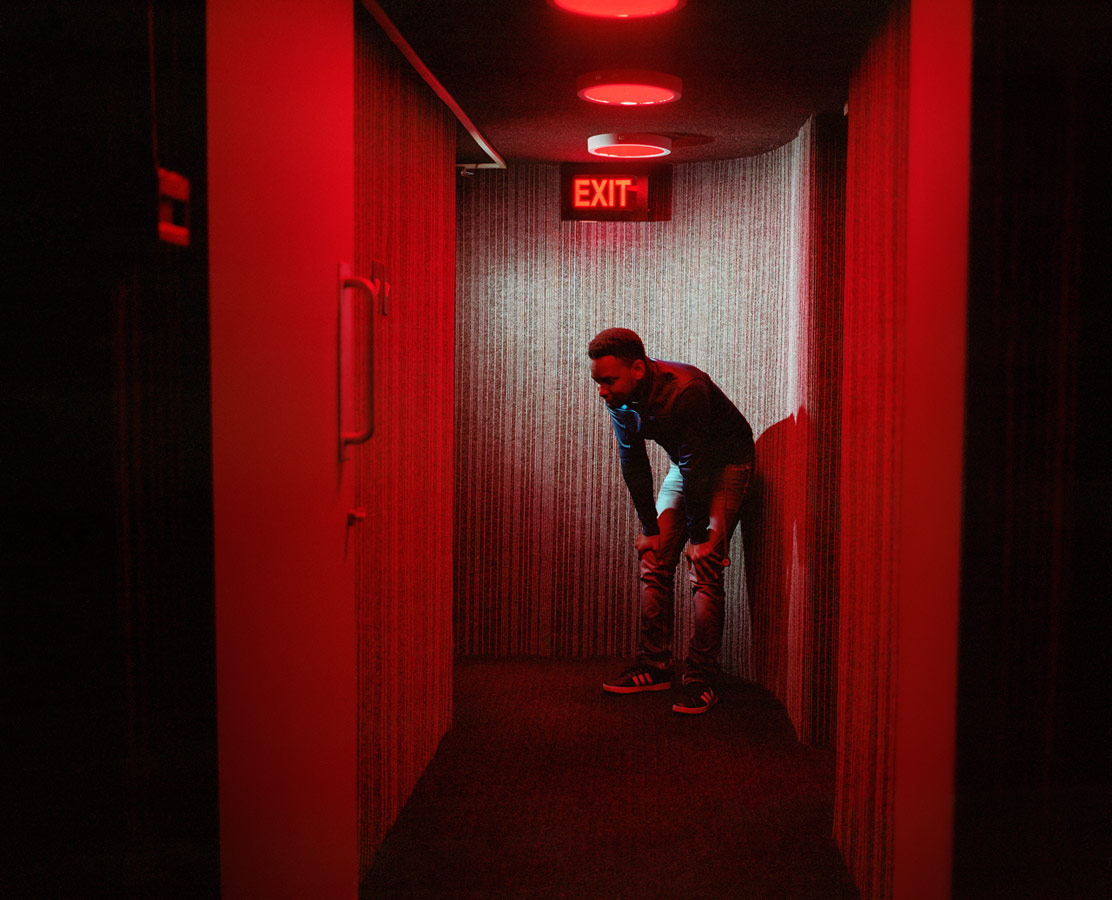
© Tommaso Fiscaletti & © Nic Grobler
Hemelliggaam (Afrikaans: Heavenly Body) or The Attempt To Be Here Now, is a visual exploration of the existential aspects of the human-environment-astronomy relationship. Inspired by South African Science Fiction writings, the project explores the interplay between scientific astronomical activity and everyday awareness of space through a contemporary lens. The project makes particular reference to Jan Rabie, one of the most existential and emblematic writers, who wrote the books ‘Swart Ster oor die Karoo’ (Black Star over the Karoo, 1957), Die Groen Planeet (The Green Planet, 1961) and ‘Die Hemelblom’ (Heaven Flower), 1971. The focus of the project is on communities, landscapes and objects located in the Western and Northern Cape, South Africa, where the sky is particularly impressive.
Something archaic radiates from the local community in connection with their science and technology needs, this project is exploring this concept through looking at forms of awareness that are already active and cultivating more awareness through conversations, participation and reflection.
“Hemelliggaam or The Attempt To Be Here Now” follows a deeply existential line, where the human beings (both the old and contemporary) through their own perception of the Universe is strongly connected with nature and the way it reveals itself.
The project has been shot on 120 Film Kodak.
Phumzile Khanyile
Born 1991 in Soweto, South Africa. Lives in Midrand, South Africa
Plastic Crowns, 2016
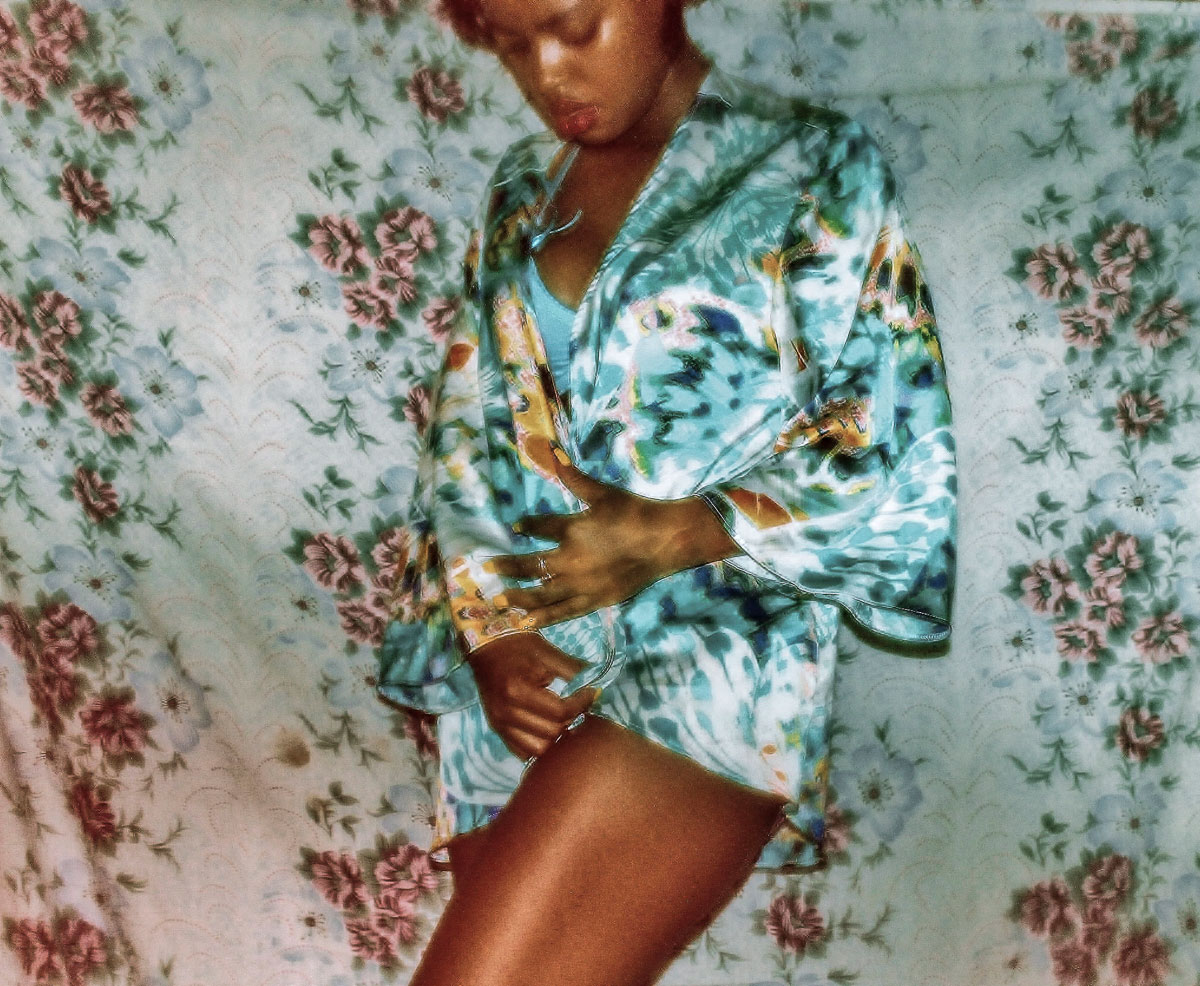
© Phumzile Khanyile
Plastic Crowns stems from the idea of taking a perceived “prestigious” ornament such as a royal or beauty pageant crown and turning it into an object that anyone can purchase and thus enthrone themselves. It is the constant reconception and reinvention of the self.
I explore beyond the tragic boundaries of what my grandmother would consider a “good woman”, probing stereotypical ideas of gender, sexual preference and related stigmas and their relevance in contemporary society. I am interested in how having multiple partners (balloons) can be an expression of choice as opposed to it being an indicator of low morality, based on societal conventions.
This body of work is a journey of self-discovery. Being raised by my grandmother who had stereotypical ideas of what it means to be a woman often left me feeling suffocated. I find it ironic that such ideas never worked out for her; I took photographs inside the house she received as a divorce settlement while she preached to me that time was running out for me to get married. My grandmother never understood photography so I would photograph in secret whenever she was at church or asleep.
Going through my family album and seeing how curated it was, I wanted to unveil the dysfunction and speak about what really happens behind closed doors.
I keep a journal regarding what I am going through internally, which is influenced by both memory and the present; how I remember the women in my family from my childhood and teenage years, and the realisation that what I took for strength at the time was actually survival.
Looking back it is ridiculous that women in my grandmother’s day would sneak off to the bathroom to hide the fact that they were smoking, but it’s also funny how the smell would escape through the doors and windows. I remember that smell.
Placing headscarves and a chiffon dress over my camera mimicked the feeling of film, but also allowed me to view the space differently, disrupted, which echoed what I already felt.
This work is me wrestling.
What if we allowed girls to sit with their legs open too.
CAP Prize – The Contemporary African Photography Prize
Share:

